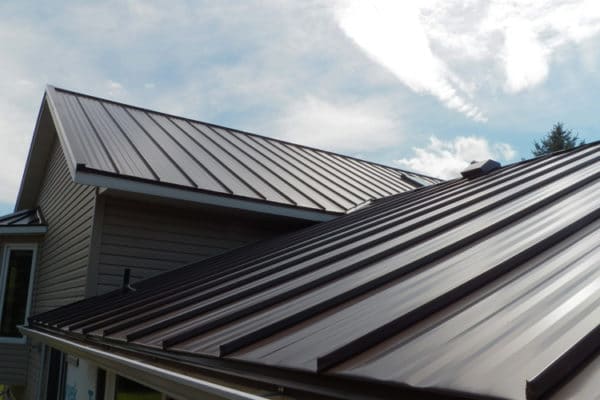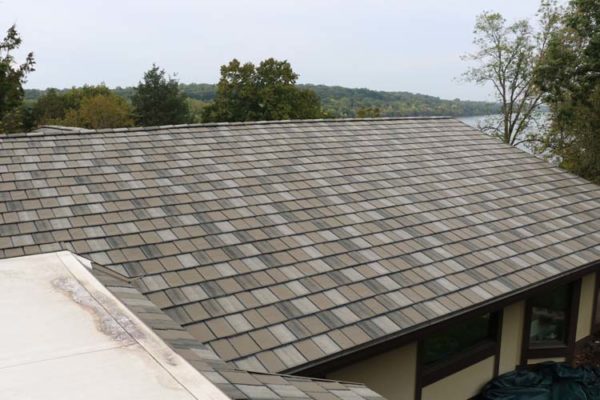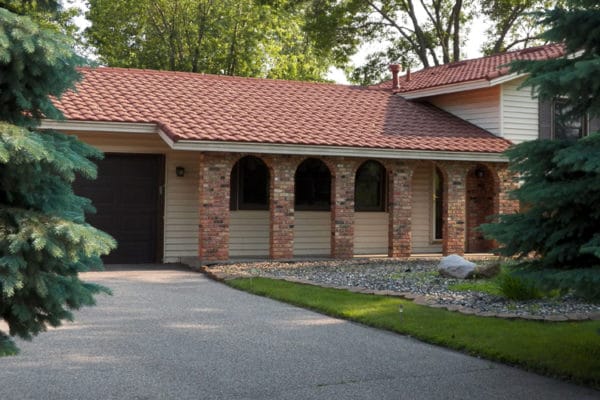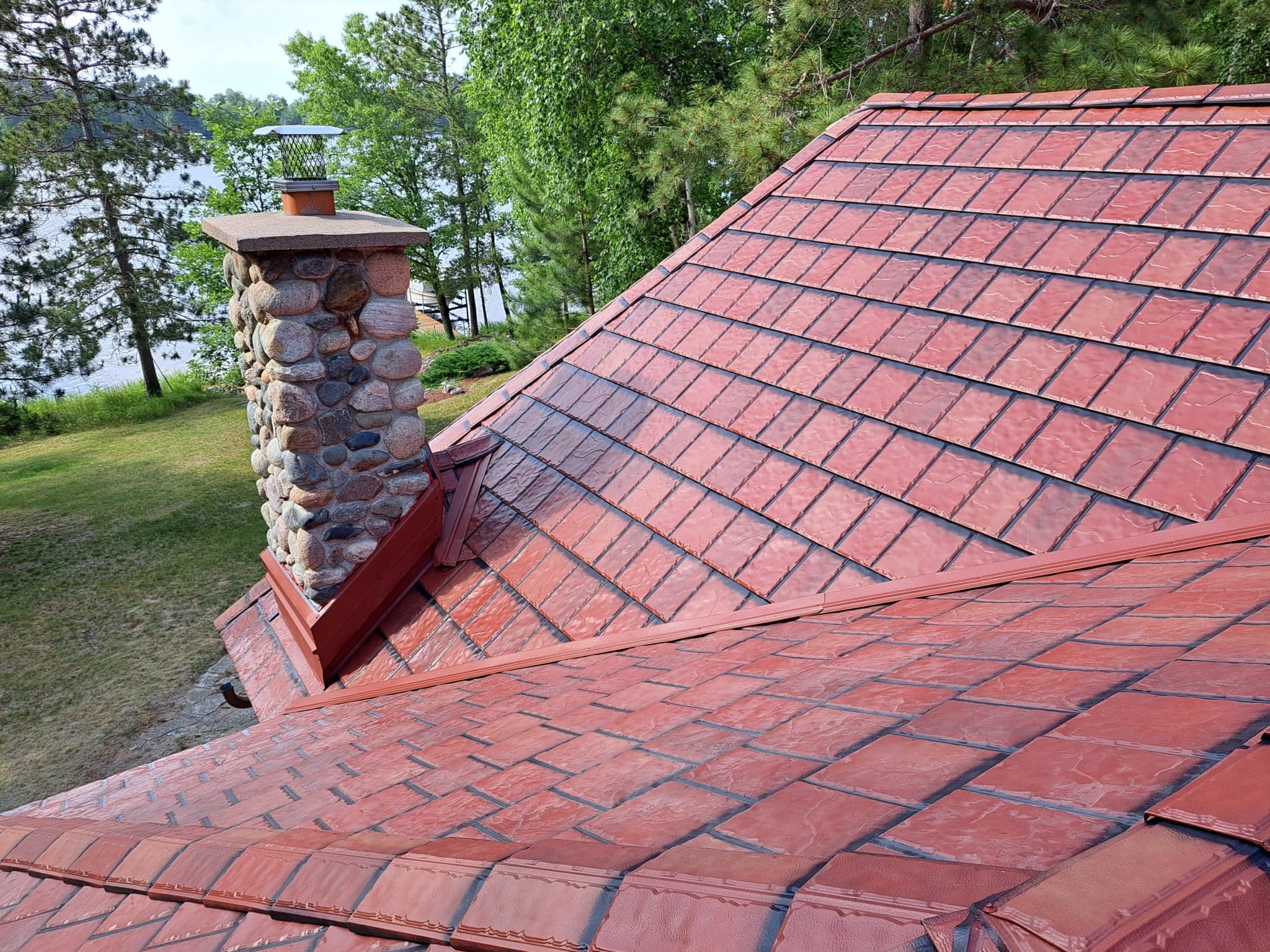Frequently Asked Questions about Metal Roofs
This is probably the #1 question we as metal roof installers get. Perhaps you remember standing under a barn, shed or outbuiliding during a rainstorm. In these structures, the steel roof panels are secured directly to the rafters. There is no sound barrier so it sounded loud when it rained. On a home, townhome or heated commercial facility, the steel panels are fastened to an underlayment, then decking, with insulation under that and a sheet rock ceiling which absorbs and muffles sound.
In addition, and this too helps muffle sound, some metal roofs can be installed over an asphalt roof. Considering the layer of shingles, roof deck, attic air space, rafters, the insulation, and sheetrock ceiling, individuals who have metal roof say what they hear when it rains is the rain on their skylights and soft metals (gutters), not their metal roof.
Yes, but like with any roof care should always be taken.
Initially a metal roof may cost more depending on the type of asphalt shingle you compare it to. A steel roof will never need to be replaced in your lifetime, lasting 40-80 years (depending on metal type) when compared to asphalt roofs which last about 17-20 years in our climate. If you have hail, wind or storm damage asphalt shingles are more likely to damage when compared to a metal roof. Therefore over a life-time, a metal roof is less expensive.
On average homeowners who invest in a metal roof will increase the home’s resale value. Add in savings from reduction in homeowners insurance and cooling costs, overall durability (never have to replace again) it is a good investment.
It is unlikely but yes, Metal roofs are covered with a Class 4 hail protection warranty –the best possible. Many of which are approved by many insurance companies so that homeowners insurance premiums may be reduced.
Metal roofs are made of steel and designed to be installed to withstand high wind storms. Most come with a wind protection warranty rated to 120 MPH winds, some even higher. Many are approved by insurance companies so that homeowners insurance premiums may be reduced.
The steel roofing materials used on residential homes today are different than what used in agricultural applications. It is galvanized differently with protective barriers on both sides of the panel and that protects against rust. In addition, residential metal roofing products are pre-finished at the factory using specially engineered, oven-baked paint applications. These provide long lasting deterioration protection and beauty.
Yes. Unlike asphalt shingles which must be installed at a specific outside temperature.
Metal roofs reflect solar rays minimizing heat build-up on your roof and absorption into your attic. With proper ventilation and insulation, a metal roof homeowner will notice a difference in their cooling costs.
Metal roofs are designed to withstand the extreme cold of Minnesota and Wisconsin winters and the blistering heat of the summertime. Most carry a lifetime warranty.
That depends on the style of metal roof that you choose; standing seam, stone coated steel or enhanced steel. Each of these has their own characteristics and some are better for “over asphalt” installations. Also, if you suspect you have some structural damage to your roof, a complete tear off may be best so that these areas can be inspected and repaired before your new metal roof is installed.
Typically, a lightning strike the highest object around and rarely is that the tip of the house. Grounding of metal roofing is usually not required by most major building codes. However, some local building codes may require it. Do check with local building codes before starting your installation. And of course, metal roofs can be grounded by a lightening protection specialist at your request.

Phone: 763-229-6756
Email: info@amburneyexteriors.com
Headquartered in Otsego, Minnesota
Minnesota License: # BC635734
Wisconsin License: # 09110029
Thank you for stopping by.
How may we help you today?





